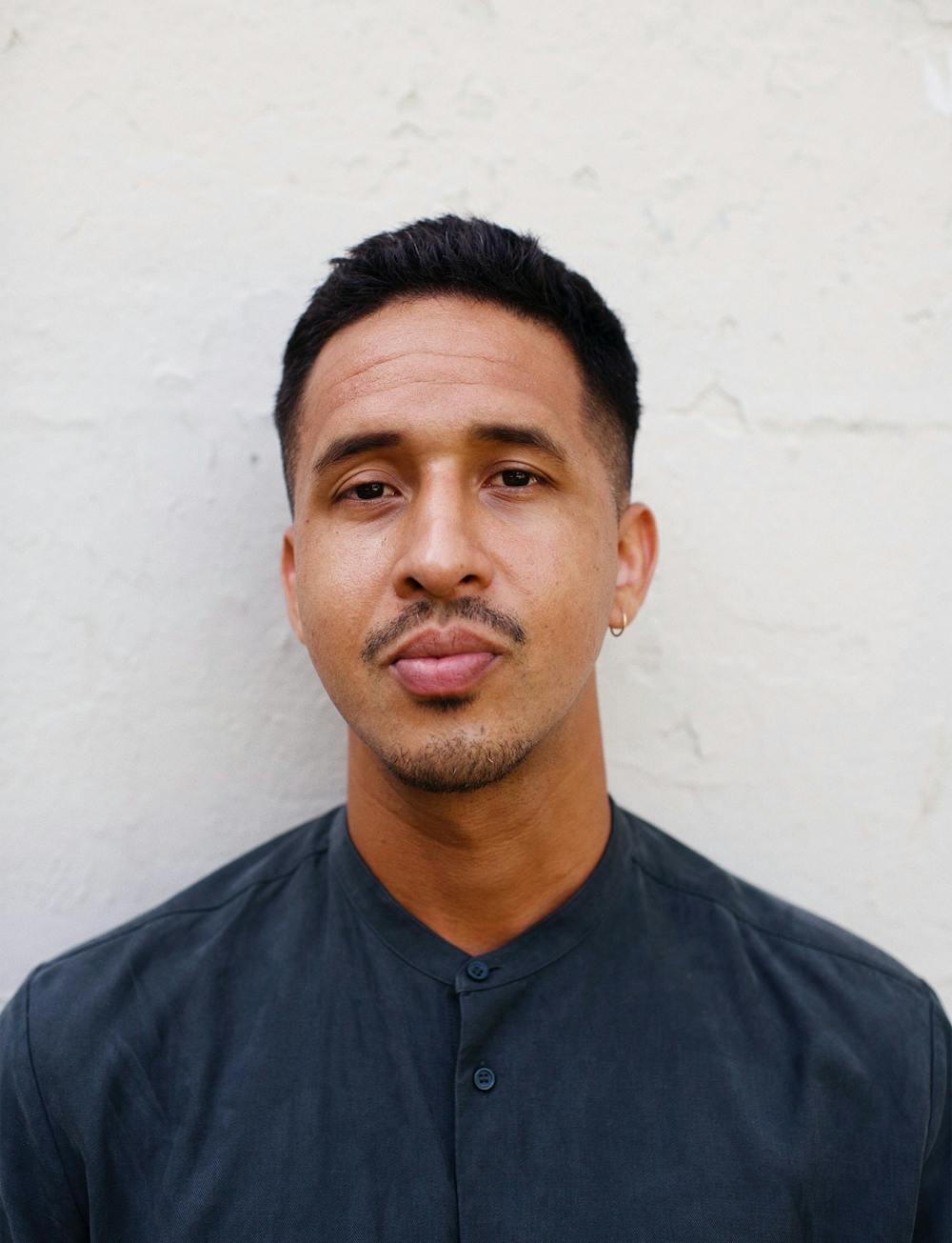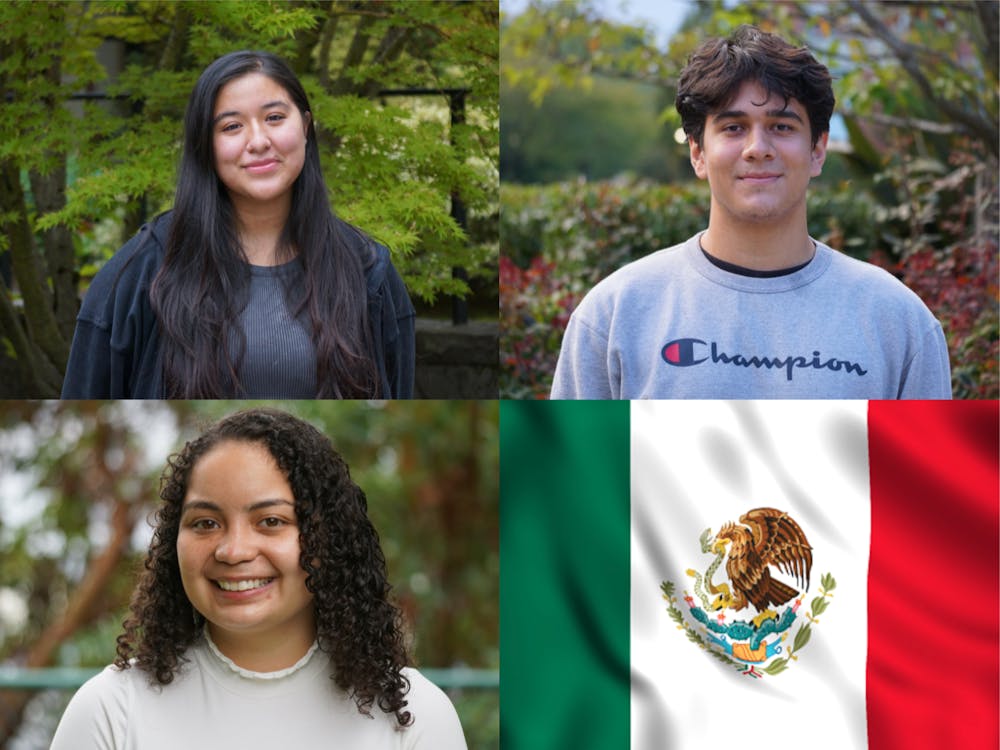The moment after Walter Thompson-Hernández got the call that he would be working for the New York Times, he hung up and cried from overwhelming excitement because he knew how this would change his life forever, but had no idea what was in store for his future.
“To be hired by a place like the New York Times, I knew would change my life forever, and it has,” Hernández said. “It has led to a lot of incredible opportunities and enormously incredible experiences that I could only imagine, because, at the end of the day, I’m still that kid from Southeast LA who lived under the flight path and would look up at the airplanes while they flew over my home and landed at nearby LAX. I'm still that kid. So it obviously seemed unreal.”
Hernández, a 2009 University of Portland Alum, will give a Zoom presentation co-hosted by Diversity and Inclusion and Portland Magazine on Oct. 8 from 5:00 p.m. to 6:30 p.m. PST in honor of Latinx Heritage Month. There, Hernández will be addressing questions from students who identify within the LGBTQ+ and/or BIPOC(black, indigenous and people of color) community as well as answering questions from those who attend the event itself.
While working at the NYT, Hernández’ focus was mainly getting perspectives from cultures that are often underrepresented in the media. The story that started out as a piece for the NYT about a group of African-American men and women who had started a horse ranch in Compton with deep ties to the legacy of black cowboys in American culture, was later published as a book called The Compton Cowboys.
Within his book, Hernández focuses on showing the other narrative Compton holds rather than what the media has sensationalized it to primarily be. Being able to share these stories fascinates him because he is able to understand how other societies understand racial identity and is able to spread that narrative in a positive way.

Walter Thompson-Hernández is a New York Times reporter, author, and podcaster. He graduated from the University of Portland in 2009 with a Political Science Degree.
Photo Courtesy of Walter Thompson-Hernandez
Along with the success of his book, Hernández has his own NPR podcast called California Love (available on Spotify and Apple Podcast), where he invites his listeners into his own life and showcases his love for Los Angeles and guides you through the streets of his own community.
Hernández has recently stepped away from journalism and has started to explore other avenues like directing and producing within the television and film industry, after his book landed a feature film deal.
Once Hernández began receiving recognition he was ecstatic that people were enjoying the stories he was sharing about his community.
“It was really gratifying because I grew up five-minutes from Compton and most of my family is still in that same community,” Hernández said. “I was essentially writing a story about folks who look and sounded like me, who are essentially people who I grew up with. So, it was really special for all of us to experience this at the same time. And for me, to write a story about the Compton Cowboys, that led to a book deal, that led to a feature film deal, was an incredible experience that has changed our lives forever.”
While studying at UP, Hernández majored in political science and wasn’t always set on being a writer. He was on the men's basketball team and eventually played professionally for a team in Latin America for a couple of years, and it wasn’t until he got injured that he really started to focus on writing.
“I've always been a reader since I was a child,” Hernández said. “So I think my introduction for writing really comes from reading, and my mom was in a Ph.D. program in literature at UCLA, so I kind of grew up in that environment.”
After college, Hernández gained a broader curiosity about topics that affect the way we perceive other people, and started writing about what he saw when traveling or asking people about the communities they associate themselves with.
Hernández started to ask questions to the people in his community when he started writing, or would talk to his family members.
“I became really interested in questions about our culture and questions about race and identity,” Hernández said. “So I just started to explore that through reading and writing and through photographs.”
Assistant Provost for International Education and Diversity and Inclusion, Eduardo Contreras, was very excited to have Hernández as a guest speaker, because he recognizes how important it is having stories from the LGBTQ+ and/or BIPOC community shared and listened to, being a part of the Latinx community himself.
“This is kind of an extra special opportunity to bring somebody who's not only a member of our extended community, but they're also somebody who is the most prominent up and coming voices in writing,” Contreras said. “His stories that appear in the New York Times are really poignant and thoughtful, and what I appreciate about his writing, and what he wrote a little bit about in Portland Magazine, is that he is seeking to make connections with other cultures. He himself is half Mexican, half African American, but he wants to connect with other cultures in ways that are not exploitative, but are narratives being told within his stories.”
Hernández tries to be as respectful as possible when learning about a new culture and tries to ask questions that would pertain to the people involved.
“I think we have to have a certain amount of respect for each other, and that comes before being a writer, that comes before being a journalist.” Hernández said.
Both Diversity and Inclusion Program Coordinator, Yuri Hernández-Osorio, and Editor of Portland Magazine, Jessica Murphy Moo, saw the potential that Hernández held, both in his storytelling and personality, when approaching him for the event.
Hernández, while being an accomplished writer, wants students to recognize that he is a real person and that this presentation won’t be like your average lecture. He wishes for this presentation to be an informal conversation and is excited to interact with students and share his stories and experiences at UP.
“I don't like to lecture at people, I think it's weird,” Hernández said. “I don't think I know more than anybody else, we are all really smart and we all have so much to share. To me, the highlight is always the Q&A where we're able to speak in really honest ways.”

Thompson-Hernandez has traveled all over the world, writing stories and capturing images on almost continent and throughout the United States. He focuses on representing "historically marginalized voices."
Photo Courtesy of Walter Thompson-Hernandez
Moo wishes that students will come to this event and begin to read more of his work. She describes him as a listener first and journalist second and praises this quality.
“I guess one of my hopes is that people will want to read his work and talk to him,” Moo said. “I'll admit to that, because he's a great writer. I read his book, and there's a sensitivity to his writing and in his style that you can hear in his voice and how he portrays people with a lot of depth that you hear in his podcast as well.”
Osorio was also excited to be able to open conversations about culture and identity, and worked with students over the summer to bring Hernández. She asked student leaders of LGBQT+ and/or BIPOC related clubs to collect questions that Hernández will be answering in his presentation.
“With students, there are more authentic questions,” Osorio said. “Just to give you a little preview, there's a lot of questions about what his experience was like at UP, like ‘What does he think that UP can do better?’ or more about his own identity. He's Afro Latino, and they (students) want to know more about that experience, and about advice on how to break into these industries.”
By having events with speakers like Hernández, Osorio is trying to help remind students that they are a part of a larger community outside of UP’s campus.
“We don't just live in a bubble, we live in and are a part of a community in North Portland, and that historically has been a Black community,” Osorio said. “So how do we make sure that our campus doesn't feel like this elite institution that I (everyone) can't step foot on?’”
The topics of culture and identity will most likely be talked about within this presentation. Contreras urges students to notice this as a valuable educational opportunity.
“One of the most important aspects of a college education is that you get to learn about others, not in a way that you're exploiting them, or that you're depriving them of their culture, but that you're really understanding who these people are, because they're expressing themselves the way they want to be understood.” Contreras said, “And to me, that's the real unique opportunity that this event will bring to you.”
Brienna Haro is a reporter for The Beacon. She can be reached at haro23@up.edu.








